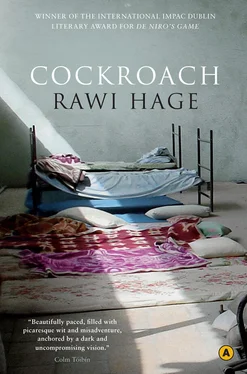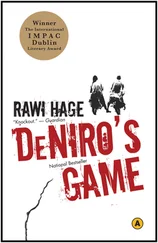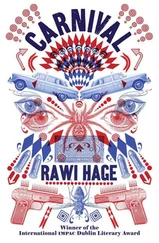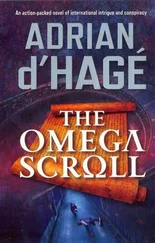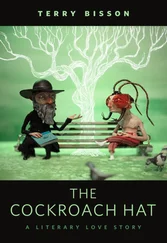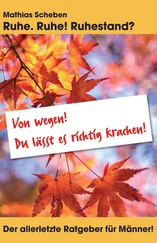Finally I managed to rush out into the street. I was stunned to realize how the change of scenery felt suddenly burdensome in the aftermath of my consumption of dead animals, alcohol, scratchy soggy lettuce, and tomatoes. And I was overwhelmed with the particular guilt of the impulsive poor who, in a moment of grandiose self-delusion, self-indulgence, and greed, want to have it all. The poor one is greedy. Greedy! Greed is the biggest stupidity. But I was filled with greed.
I stood on the street corner, undecided, satisfied but undecided. Then I thought: I deserve another drink. I deserve to spend. I deserve every drop of substance, every drip of intoxication. I deserve not only to forgive but also to forget. I walked down St-Laurent to the Copa and entered the bar. The Anglos of this city love this place — unpretentious, with an air of the pseudo-working class, it even has a fake plastic coconut tree that sways only for those customers who have drunk a great deal. All those McGill University graduates love to hide their degrees, their old money, their future corporate jobs by coming here dressed up like beggars, hoodlums, dangerous degenerate minorities. They sit, drink, and shoot pool. The few old-timers have their stools reserved like Portuguese monarchy. They have blended in with the old wooden bar to become part of the retro decor. And after a certain hour, they sway with the coconut tree.
I have never understood those Anglos, never trusted their camouflage. Some of them are the sons and daughters of the wealthy. The very wealthy! They live in fine old Québécois houses, complain about money, and work small jobs. I have never understood their fathers and why they hold money over their children. My father was a generous man. When he had money he showered us with it. Once he bet on a horse called Antar. No one else had bet on it. The horse crossed the line first and my father came back with cigars, two bottles of arak, five pounds of kebbeh, a row of livers, Arabic sweets, six pounds of fresh almonds, and five of his gambler friends. They ate and drank all night. They sang, repeating the same chorus for hours. My father called our names, chased us, and asked my sister for kisses as he spilled tears and drooled words of love and regret at her. He handed us money, large bills, left and right. He called my sister by his mother’s name and kissed her on the mouth. My sister did not blink, did not move, when he caressed her hair. My mother stood there silent, watching the men getting drunk. She even filled their tiny glasses. They all toasted her health, and she nodded and waited. Then, when they all started to wobble towards the bathroom and aim their urine at the floor, she pulled them aside one by one and pushed them down the stairs. And when my father fell asleep on the table, she asked me to help her, and we carried him to the bedroom. I watched her remove his shoes as she muttered and cursed. She stripped off his pants and dug her hands in his pockets. She pulled out the rest of the money and closed the door; that night she slept on the couch. She turned to my sister and said: How much did he give you?
My sister jeered, climbed outside the window onto the balcony, pulled out the money, and balanced on the edge of the rail. Behind her the moon looked large and full. She looked like a bat-woman about to fly into the city’s lights. This is what my father gave me, evil one, the bat-woman said. You take one more step and I will release the bills against the full moon and fly after them.
I sat under the coconut tree. I ordered the special: two beers for the price of one. The tree gave me shade from the spotlights. I drank. I ordered some more beer and finished it all. After that, I went outside. Somehow the cold weather felt irrelevant. I strolled, and my breath smoked against the freezing city walls. I broke into a run and cut across streets and slipped down the slope towards St-Catherine, all the while looking behind me. I had that strange feeling of being chased. So I ran as if I was being hunted by giants who could pick me up and ponder me, then drop me and make my blood splatter like roadkill, like an insect splashing on a car windshield. I zigzagged, frantic, scanning the sky for any shadow of a giant’s shoes or rolled-up newspapers that would suddenly land on my head like a collapsed roof, like ten layers of sky falling to earth. I sucked in the coldest winds, the cruellest air, and jumped like a storm in front of car tires cutting the wet asphalt, the red light, the brick houses, the curling spiral Montreal stairs that might well lead you up, if it was your lucky day, to a winter party where you would surround yourself with rings of smoke, curved toes, rolling French R’s, knives carving triangles of brie in front of Eurotrash with foreign beers in hand and wearing Italian leather shoes. I reached Chinatown, passed through its arches, and asked the dragon that guarded the gate to spit fire on me, to warm my chilled face, my wet toes.
Hélas, the dragon replied with a heavy accent, all my fire was exhausted last night on grilled ducks that now hang in the steamy windows of restaurants with dirty floors, hot woks, and solemn, quiet faces slurping whatever is fished out of bowls with chopsticks.
I reached Notre-Dame Church, and then walked down to the old terrain of the circus. I looked at the ships docked at the city port. The long promenade was empty, no American tourists strolling with sugar cones, looking like moving icebergs, no five-handed jugglers, no lovers locked together by their fingers, no eternally smiling clowns, no bicycles, unicycles, or tricycles, no caricatured faces drawn with charcoal on ten-dollar canvases. The tourists were away, the sailors were away, and there was only one crazy creature to be seen crossing through the cold night.
I DRAGGED MYSELF to see Genevieve again. I did not feel like seeing her. Talking about your mother when she is gone is not a decent thing to do.
I entered the health centre and informed the elderly lady at the desk of my presence. I picked up a magazine and looked around at the posters on the wall. One good thing about waiting in these health-care places is watching the nurses, therapists, psychopaths, cleaners, and secretaries that pass by. They all look equally preoccupied, some rushing, some even brooding. I could never figure out who was who. Who was hearing voices and who was making them, who was trying to stop them and who was suppressing them? But when you sit and wait, everyone knows what you are here for. Everyone knows that you are going to confess something — something evil that was done to you, something evil that you did. Still, the past is all in the past. If you sit, wait, behave, confess, and show maybe some forgiveness and remorse, you, my boy, you could be saved. Jesus shall appear from behind one of those office doors in a skirt and stockings, holding a file of lives in his hand. Jesus will lead you, walk in front of you, swinging his ass up the hallway. And you, my boy, you must not even dare to wonder how Jesus will look naked on top of the desk. Do not wonder what he thinks of you. Jesus is very sensitive to men’s looks. He can detect your innermost thoughts by the twitch in your eye, by the slightest wink and stare. And Jesus will tell you straight up, Son, if your right eye is causing your downfall, pluck it out and throw it away; it is better for you to enter the kingdom of God with one eye than to have two eyes and be thrown into hell. Jesus, unlike working-class waitresses, does not need a shield. Jesus knows every thought in your head; he knows well that you, my boy, want to make him confess as well. But Jesus is strong-willed and is on his way towards you, smiling at you, leading you to that familiar chair, that small table, and he will be asking you how your days were, and your nights, starting with the bad weather and finishing with your cold mother.
Читать дальше
